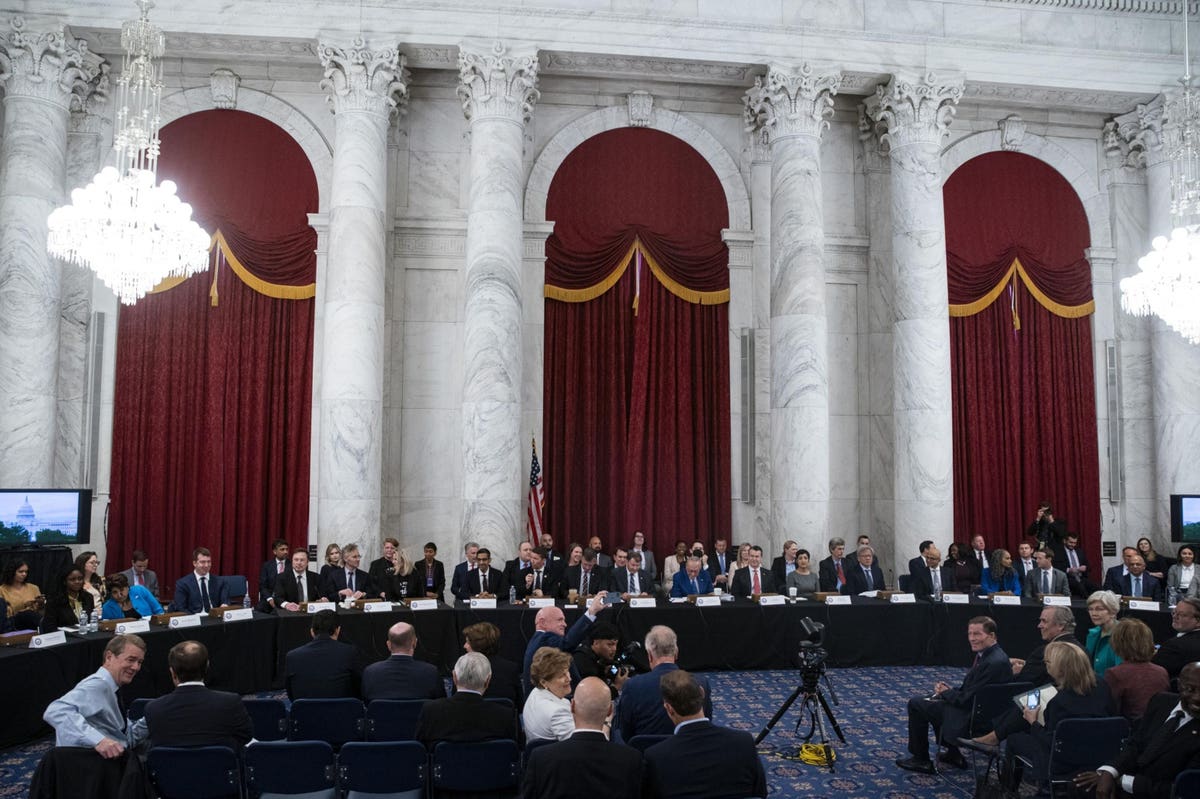After this past week, it is clear what the hottest topic in Congress is: artificial intelligence. AI has been the rage since its popular explosion this spring, but that came to a head this week with many events focused on the topic. These included hearings in both the House of Representatives and Senate as well as Senate Majority Leader Chuck Schumer’s (D-N.Y.) first AI forum. The list of attendees for Schumer’s event speaks to both the ubiquity of AI and the importance that Congress will have in shaping the technology’s future in the U.S.
This focus on the topic begs the question of what AI-related legislation Congress can realistically get done. There is no shortage of proposals, with a framework from Schumer released in June and another from Senators Richard Blumenthal (D-Conn.) and Josh Hawley (R-Mo.) this week. Both are intended to lead to comprehensive legislation for AI rather than focusing on specific applications or issues related to AI. The resulting legislation, drafts of which have yet to be published, will be sprawling and could prove more difficult to pass than more targeted bills.
While a catch-all proposal could be most appealing, allowing for the most to be achieved in one swoop, getting these bills signed into law is often more challenging. The increased breadth of legislation can enable lawmakers to oppose the package, even if they like most of the underlying provisions. In addition, even if officials agree some issues need to be addressed, there are frequently partisan disagreements over how best to do so. This problem has plagued efforts to pass federal data privacy and, more recently, cryptocurrency legislation. Furthermore, with AI specifically, some lawmakers will be skeptical of industry members’ push for regulation, including OpenAI CEO Sam Altman. Others will be concerned about creating overly onerous rules that could jeopardize innovation in a relatively nascent industry.
One narrower approach that has quietly gained momentum is spearheaded by Senator Gary Peters (D-Mich.), which seeks to regulate AI through the federal government’s use and procurement of the technology. Peters has sponsored several bills on this issue in recent years that have become law and has released more in the current Congress that he is looking to push through as chair of the Senate Homeland Security and Governmental Affairs Committee. Some of the current proposals include measures to require transparency in the federal government’s use of AI, to create training programs on AI for federal officials, and to force federal agencies to designate a point person for AI.
While these proposals are less ambitious than the comprehensive frameworks, this could work in these bills’ favor. In addition, writing rules for the federal government is typically an easier lift than creating regulations for private industry. The attraction for lawmakers is that these regulations could serve as a backdoor to rein in the industry by creating standards that companies must meet to sell their programs to the federal government. An additional upside to this push is that the lack of controversy enables the measures to be attached to larger legislative vehicles like the annual appropriations or defense policy bills. In a Congress where floor time is precious, this is a significant advantage for Peters’s attempt to pass his proposals into law.
Getting comprehensive AI legislation done is most likely a pipe dream for Congress, barring a black swan event that necessitates an emergency response. However, hopes for bills regulating the technology should not be written off entirely in the current session. The area to watch is what Peters can do to police the federal government’s interactions with AI. This drive will likely come to a head later this fall after the current spending drama has been resolved.
Read the full article here












Leave a Reply